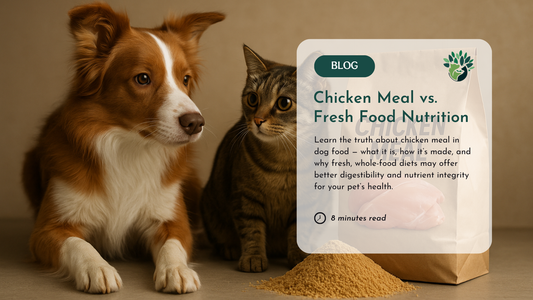Rabies is one of the deadliest diseases for both animals and humans, caused by a virus that affects the brain and central nervous system. It is primarily transmitted through the bite or saliva of an infected animal, such as a raccoon, bat, or dog. According to the World Health Organization (WHO), this highly fatal disease is a serious public health problem in over 150 countries and territories, particularly in Asia and Africa, where tens of thousands of deaths occur annually. Fortunately, rabies is preventable, and the rabies vaccine plays a crucial role in protecting dogs and humans alike.
What is Rabies?
Rabies is a viral, zoonotic disease that affects all mammals, including humans, dogs, and wildlife. Once the virus enters the body, usually through a bite or scratch, it travels to the brain, causing severe neurological symptoms. If left untreated and the virus infects the central nervous system, rabies is 100% fatal. This underlines the importance of prompt vaccination for pets and seeking immediate medical attention if exposed to a potentially rabid animal.

How Rabies Affects Dogs
Dogs are the source of 99% of human rabies cases worldwide, making them key targets for vaccination efforts. The virus causes symptoms such as:
- Excessive drooling
- Aggression or fearfulness
- Difficulty swallowing or foaming at the mouth
- Paralysis or staggering
- Seizures
These signs rapidly progress, and once clinical symptoms appear, rabies is always fatal in both animals and humans.
The Importance of the Rabies Vaccine
The rabies vaccine is your dog's best defense against this deadly virus. It works by stimulating the immune system to produce antibodies that neutralize the virus before it reaches the brain. In many countries, including the U.S., rabies vaccination is legally required for dogs, not just for their protection but to prevent the spread of the disease to humans.
Vaccinating dogs is essential to prevent human rabies cases, particularly since dog bites are responsible for most human infections. According to the World Health Organization (WHO), 40% of rabies cases affect children under the age of 15, emphasizing the importance of widespread dog vaccination and bite prevention measures.
When Should Your Dog Be Vaccinated?
Puppies typically receive their first rabies vaccination at 12 to 16 weeks of age, followed by a booster after one year. Afterward, depending on local laws and your vet's advice, your dog will need boosters every one to three years. Staying up to date with vaccinations ensures your dog’s long-term protection.
Why Dog Vaccination is Critical
By vaccinating dogs, we protect both pets and people from this fatal disease. The WHO, alongside global partners, aims to eliminate human deaths from dog-mediated rabies through a One Health approach, which includes:
- Mass dog vaccination
- Access to PEP for exposed individuals
- Health worker training
- Improved disease surveillance
- Bite prevention education
Rabies Prevention for Humans: Post-Exposure Prophylaxis (PEP)
Vaccines can protect people from rabies both before and after potential exposure. As of 2024, three WHO-approved rabies vaccines are available worldwide: RABIVAX-S, VaxiRab N, and VERORAB.
Pre-exposure prophylaxis (PrEP) is recommended for those at high risk, like lab workers, wildlife rangers, or people living or traveling in rabies-prone areas. Even with PrEP, anyone exposed to rabies still needs Post-exposure prophylaxis (PEP) for protection.
When Post-Exposure Prophylaxis (PEP) is necessary, as outlined by the World Health Organization (WHO):

Final Thoughts
Rabies is a devastating disease, but it is entirely preventable with proper vaccination and awareness. Ensuring your dog is up to date on their rabies shots not only protects their health but also contributes to the safety of your community. Working together through responsible pet ownership, vaccination programs, and public health measures, we can reduce and eventually eliminate rabies cases worldwide.
If your dog is due for a rabies shot or you have any concerns, contact your veterinarian to discuss the best vaccination plan to keep your pet—and your family—safe from this deadly virus.
















